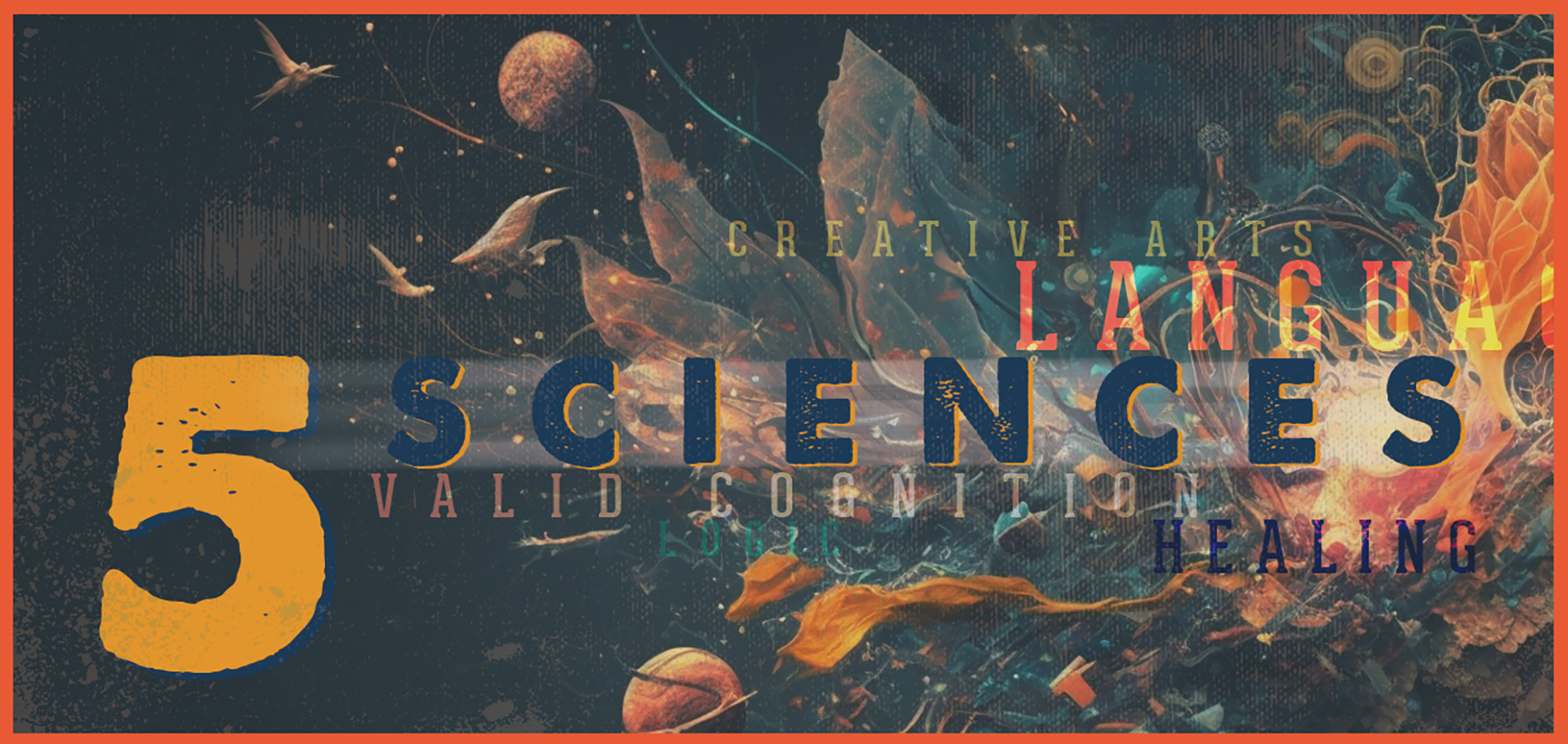The Five Sciences:
Accomplishing the Aim of the Bodhisattva
This year at the 2023 Summer Institute, thefive sciences will be taught on site at the University of Colorado, Boulder
In order to benefit all sentient beings, one needs to be able to communicate according to the interests and abilities of a great diversity of minds. The best training for achieving that goal is the training in the five sciences because, together, they encompass all that can be known.
Lama Mipham said, “All mundane and supramundane topics of knowledge can be contained . . . within a simple enumeration of just five fields of knowledge.”1
As aspiring bodhisattvas, we attempt to help as many sentient beings as possible in whatever way we can. If we can speak the language of these different sciences, then we will be able to strike up conversations with all sorts of people in all kinds of situations. Making connections with people in this way will give us the opportunity to put our bodhichitta aspiration into action.
The five sciences are not only important for aspiring bodhisattvas but also for noble beings (arhats) and bodhisattvas on the bhumis. Without training in these fields of knowledge, it would be impossible for them to become fully enlightened buddhas.
Maitreya said:
Unless they pursue the five fields of knowledge,
Even supreme noble beings [arhats] will not become omniscient.
They therefore apply themselves to these [five sciences] so that they may conquer and provide for others,
And so that they themselves will know everything. [XII.60][1]
The Sutra on Repaying Kindness says, “In order to attain the highest enlightenment, one needs to study the five forms of knowledge.”[2]
Thus, the ancient Nalanda University taught the five sciences, and dharma institutes continue to teach them today.
The Five Sciences at the Nitartha Institute
The entire shedra curriculum[3] at Nitartha was designed around the five sciences. We offer:
- Creativity and the Arts
- Healing
- Language
- Science of Valid Cognition
- Inner Science of Mind
1. Creativity and the Arts
There are numerous treatises on mundane arts and sciences that involve body, speech or sound and mind. These include physical exercise, visual arts, poetry and song, and distinguishing between what the world upholds and rejects. This year’s Summer Institute will offer these types of practices through thangka painting, lujong and Space Awareness (Read more).
2. Healing
There are several Buddhist treatises on medicine, including the causes and nature of illnesses and their remedies, longevity, eight aspects of medicine for different population groups and treatises on healing from injury caused by external factors such as poison and weapons. At the Summer Institute, Dr. Phil Weber will give talks on Health and Healing for Meditators, drawing from the Tibetan tradition.
3. Language
The Nitartha Institute teaches Colloquial Tibetan and Tibetan literature courses to help students communicate and understand the teachings directly, through understanding the meaning of the source language. Four Tibetan language courses will be offered at this year’s Summer Institute, including Colloquial Tibetan for Beginners and a new introductory course on Reading Tibetan Buddhist Literature.
4. Science of Valid Cognition and 5. Inner Science of Mind
At Nitartha Institute the Department of Buddhist Studies contains both the Science of Valid Cognition (pramana, also known as logic) and the Inner Science of Mind (Buddhist philosophical systems) within . In general, the Science of Valid Cognition, or logic, can be acquired for mundane uses. In fact, pramana was not developed within Buddhism, but rather, it was refined over time through dialogues with those who held other beliefs. The classification of mind as valid or non-valid is based on the mere question of whether that mind can come to a correct conclusion about what it is entertaining. While that is not exclusively Buddhist, at Nitartha we apply the Science of Valid Cognition to Buddhist philosophical topics (Summer Institute Level 1). The study of Buddhist philosophical systems is covered in Mind and Its World III and IV and the intermediate Nitartha curriculum, and will be taught in Summer Institute Level 2 and Level 3.
These fields of knowledge have endured over time because of their crucial role in training to become a fully enlightened buddha. Omniscience, a quality of complete buddhahood, cannot be attained without them. By definition, one who has become omniscient has come to know all that can be known. This is the aim of a Bodhisattva. We are very fortunate that our “toolbox” for benefiting others is filled with these five sciences.
[1] from the Mahāyāna-sūtrālamkāra, Ornament of the Great Vehicle Sutras
[2] from Sources of Tibetan Tradition, edited by Kurtis R. Schaeffer, Matthew Kapstein
[3] Since these sciences are practiced in post-meditation they are contained in the shedra curriculum. Nitartha Institute also has a progressive Mahamudra meditation curriculum





